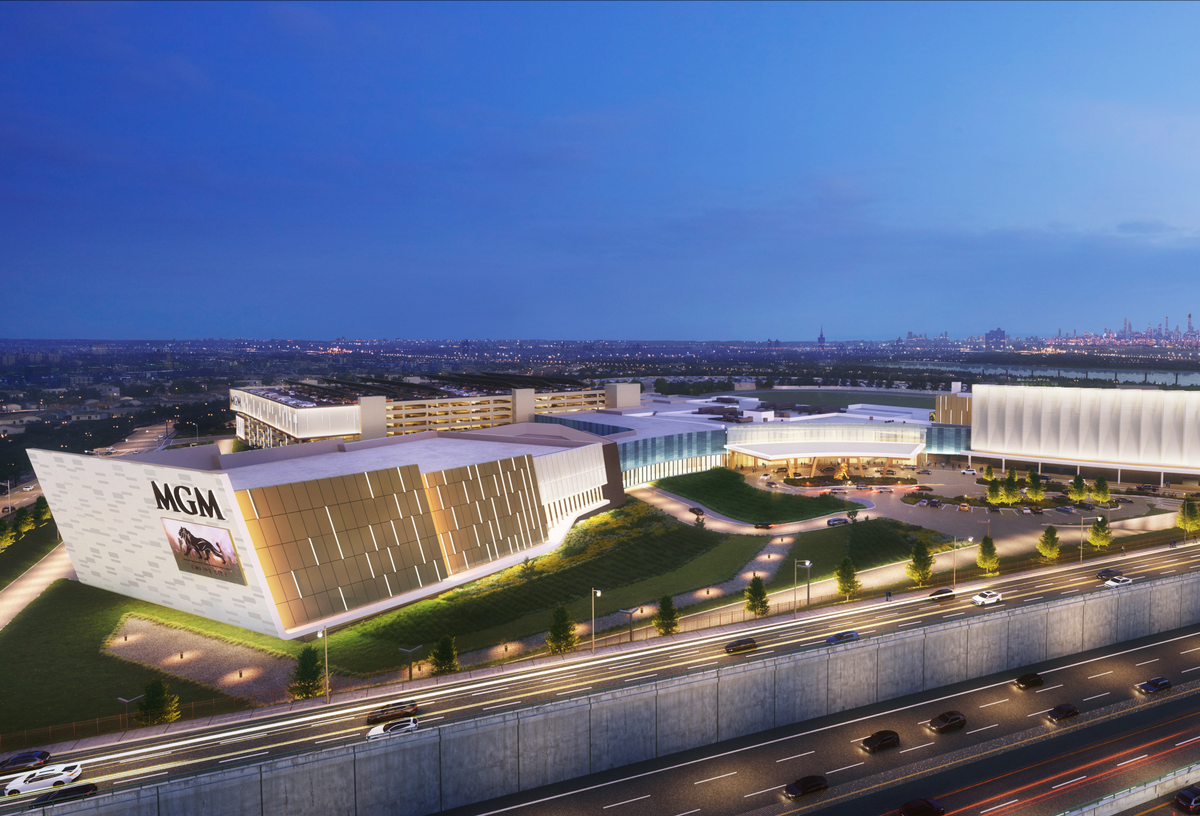MGM Resorts has withdrawn its bid to build a $2.3B casino just outside New York City, a stunning reversal for a project that was seen as a shoo-in to win one of three coveted licenses.

Courtesy of MGM Resorts
A rendering of MGM Resorts’ proposed New York City casino redevelopment
MGM’s proposal to expand its Empire City Casino in Yonkers was submitted in June and approved by a committee appointed by local lawmakers last month. But the economic assumptions underpinning the proposal have changed, MGM said in a statement Tuesday.
The Las Vegas casino operator now claims it can’t guarantee a strong enough return on what would have been a $2.3B investment. Specifically, newly issued guidance from the state indicated that MGM would qualify for only a 15-year license, not the 30-year license expected.
“The newly defined competitive landscape — with four proposals clustered in a small geographic area — challenges the returns we initially anticipated from this project,” MGM said in a statement. “We know our decision will impact many individuals; we remain committed to operating the property in its current format and believe it will continue to enjoy success serving customers in Yonkers and the surrounding communities.”
There are three downstate casino licenses available, and MGM’s withdrawal leaves just three contenders: Steve Cohen and Hard Rock’s $8B Metropolitan Park plan and Genting Group’s $5.5B plan to expand Resorts World, both in Queens, and Bally’s $4B Ferry Point project in the Bronx.
Tuesday was the last day for bidders to submit a financial scenario worksheet to the state Gaming Facility Location Board, including additional revenue and financial projections.
The Empire City Casino opened in 1899 as Yonkers Raceway and spans 97 acres. It features more than 5,200 slot machines and electronic table games, along with horse racing, and is owned by gaming REIT Vici Properties and leased to MGM.
The license would have allowed MGM to offer live table games, such as poker, and full retail sports betting, highly lucrative portions of the company’s business model. MGM planned to renovate and expand the existing facility’s gaming, restaurant and lounge areas, as well as add three new restaurants, a parking garage and a 5,000-person entertainment venue and meeting space.
MGM said it plans to continue operating Empire City in its current form, which it claims has contributed $1.6B to the state’s education fund since it acquired the property.
It also promised to invest in local public infrastructure, including funding improvements to roads, water lines and traffic technology. The company didn’t, however, propose building housing, something other developers have done to increase their odds at scoring a license.
Genting formed a partnership with Cirrus Workforce Housing to build up to 50,000 residential units across New York City for households making 80% to 140% of the area median income.
Cohen agreed to finance the construction of 450 units of affordable housing on a parking lot near Citi Field, in partnership with Slate Property Group, in addition to a $1B community benefits agreement.
Bally’s package doesn’t include affordable housing, as the project’s zoning designation only allows for commercial development, according to the developer’s website.
The gaming board, appointed by Gov. Kathy Hochul, is expected to make final decisions about the three available licenses before the end of the year.

